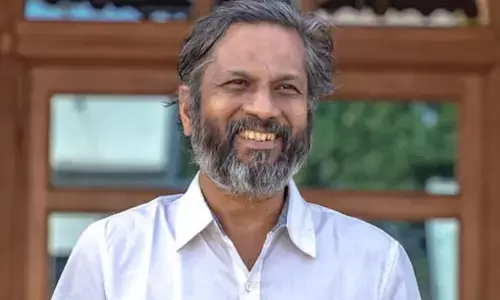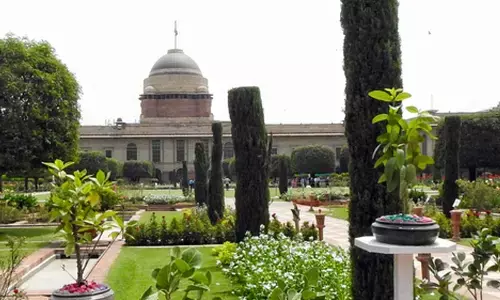Polls no special attraction for Telangana's 'joginis'

Elections bring hope and promise of a new start for most people.
Medak: Elections bring hope and promise of a new start for most people. However, for over 2,000 'joginis' in northern Telangana State, the exercise holds little meaning as the ancient religious practice that forced them into flesh trade as young girls has failed to find a mention in successive poll campaigns.
The practice, also known as the Devadasi system, is prevalent especially among the Dalit community in parts of south India even after a law prohibiting it was passed almost four decades ago.
As part of this practice, parents marry their daughters to temple deities and the girls are forced to work as sex workers after they attain puberty. Despite being ignored by the politicians, the 'joginis' cannot afford to ignore the polls as they fear losing their ration cards.
"Elections come and go but nothing has changed in my life. Still, I vote every year for fear of losing subsidised ration," a 30-year-old 'jogini', told PTI. Recalling her plight, the woman, who lives in a Dalit colony in Sardana village, said, "I was given to a village elder to be used by him once I reached puberty.
When he got tired of me, I became 'property' of the village, to be used by any man, anytime, anywhere." At present, she is the 'property' of four villages but earns less than what sex workers in big cities like Mumbai and Kolkata get.
To support her son's education, she also works as a casual labourer in fields but income from that too is paltry. "My only demand from the government is a sweeping or cleaning job in the Collectorate. It will help in supporting my son's education," she said.
The income of most 'joginis' is limited to what they get from their clients or the little rice or money they get for dancing in village temples or before a body while it is taken for the last rites.
A mother of three, Siddamma, a 65-year-old 'jogini' who lives in Jamsing Lingapur village, said she gets senior citizen pension from the State government, but it is not adequate.
"I never wanted to be a part of this practice, but I was forced as the 2,000-year-old practice is still deeply ingrained in Telangana's culture," she said. 'Joginis', who are betrothed to the first man who uses them, are largely located in Medak and Nizamabad districts of Telangana.
In the past, even Naxal groups have tried to help them break free from the shackles of the archaic system. However, they could not succeed in convincing the 'joginis.'
"We struggled to help them get out of this cruel system. We spoke to them and created awareness, but they did not agree because of public fear," said Tam Tam Yadagiri, a surrendered Naxalite.
Low literacy rate among 'joginis' compounds the problem. Many 'joginis' are illiterate and unaware that they are part of an illegal practice. They are also at a high risk of physical and emotional abuse. They are also very vulnerable to sexually transmitted infections, including HIV and AIDS.
Nizamabad MP Kavitha, who is seeking re-election from the Nizamabad Lok Sabha constituency, claimed that most women had come out of the system and only the last generations remained.
"It is a profession which is not relevant anymore. But the last generations are left. Most of them have come out (of the system) and are leading their lives in a different way and have children," she said. She said the government is the first to recognise 'joginis' as destitute women and give them pension.
"We are giving a pension of Rs 1,000 at present and from May we are planning to give Rs 2,000," she said. "Earlier governments never gave them anything. They had a scheme of giving them 1-2 acres of land. Not many of them got it. They are in a very dire situation.
Our government is at least giving them pension," she added. This is the only community which has 'Antodaya Anna Yojana' (AAY) ration card with 35 kg of foodgrain supply, Kavitha, daughter of Telangana Chief Minister K Chandrashekar Rao, said. Asked about providing jobs to this community, she said, "We have not given any thought to it."















